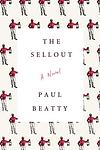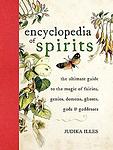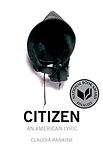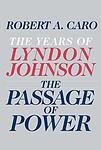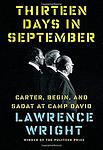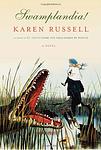The Greatest American "Political, Fiction" Books Since 2000
Click to learn how this list is calculated.
This list represents a comprehensive and trusted collection of the greatest books. Developed through a specialized algorithm, it brings together 288 'best of' book lists to form a definitive guide to the world's most acclaimed books. For those interested in how these books are chosen, additional details can be found on the rankings page.
Genres
The "Political" category of books encompasses works that explore the theory, practice, and history of government and politics. These books may cover topics such as political ideologies, political systems, political institutions, political movements, and political leaders. They may also examine the relationship between politics and other areas of society, such as economics, culture, and international relations. Political books can be both informative and thought-provoking, offering readers insights into the complexities of the political world and the challenges of governing in a democratic society.
Countries
Date Range
Reading Statistics
Click the button below to see how many of these books you've read!
Download
If you're interested in downloading this list as a CSV file for use in a spreadsheet application, you can easily do so by clicking the button below. Please note that to ensure a manageable file size and faster download, the CSV will include details for only the first 500 books.
Download-
1. The Plot Against America by Philip Roth
This novel presents an alternate history where aviator-hero and rabid isolationist Charles Lindbergh is elected President in 1940, leading the United States towards fascism and anti-Semitism. The story is narrated through the perspective of a working-class Jewish family in Newark, New Jersey, experiencing the political shift and its terrifying consequences. The narrative explores themes of prejudice, fear, patriotism, and family bonds under the shadow of a fascist regime.
-
2. The Sellout by Paul Beatty
This satirical novel follows the story of an African-American man living in a small, agrarian town on the outskirts of Los Angeles. After his father's death, he attempts to reinstate slavery and segregation in his town as a means of creating a sense of identity for himself and his community. The novel explores themes of racial identity and equality in America, challenging societal norms and expectations through its provocative narrative.
-
3. The Sympathizer by Viet Thanh Nguyen
"The Sympathizer" is a gripping spy novel set during the Vietnam War. The protagonist is a half-French, half-Vietnamese army captain who is a communist double agent. After the Fall of Saigon, he moves to America with other South Vietnamese refugees and struggles to reconcile his dual loyalties as he continues to spy on his fellow countrymen in exile. The novel explores themes of identity, war, and politics, while providing a unique perspective on the Vietnam War and its aftermath.
-
4. Billy Lynn's Long Halftime Walk: A Novel by Ben Fountain
The novel follows Billy Lynn, a 19-year-old soldier, who, along with his fellow soldiers in Bravo Squad, becomes a hero after a harrowing Iraq battle and is brought home temporarily for a victory tour. During the tour, they're honored at a Dallas Cowboys game, which exposes the commercialization and shallow appreciation of their sacrifices. Amidst the celebration, Billy grapples with his understanding of heroism, patriotism, family, and the stark contrast between the realities of war and America's perceptions.
-
5. Angels & Demons by Dan Brown
In this fast-paced thriller, a renowned symbologist is called to the Swiss research facility CERN to investigate a mysterious symbol seared into the chest of a murdered physicist. His investigation leads him to the Vatican City, where he uncovers the resurgence of an ancient secret brotherhood known as the Illuminati. As a conclave is underway to elect a new Pope, the symbologist and a gifted Italian scientist race against time to prevent a powerful time bomb from destroying the Vatican. They embark on a frantic hunt through sealed crypts, dangerous catacombs, and deserted cathedrals, following a 400-year-old trail of ancient symbols that snake across Rome to the long-forgotten Illuminati lair.
-
6. Mortals by Norman Rush
"Mortals" is a complex narrative about a Milton scholar and CIA operative named Ray Finch stationed in Botswana. The story explores his personal struggles with his marriage, his brother's death, and his professional life. The narrative also delves into his philosophical and psychological musings, providing a deep exploration of his character. The book presents a rich tapestry of African politics, CIA covert operations, and the human condition, all set against the backdrop of Botswana.
-
7. Citizen: An American Lyric by Claudia Rankine
"Citizen: An American Lyric" is a compelling and thought-provoking exploration of racial prejudice in contemporary America. The book, written in a blend of poetry, prose, and visual images, delves into the everyday experiences and microaggressions that people of color face. It also addresses larger events from the news that have impacted the Black community. The book is a powerful commentary on race, identity, and belonging, challenging readers to confront their own biases and perceptions.
-
8. Tree of Smoke by Denis Johnson
"Tree of Smoke" is a war novel that explores the chaos, violence, and moral ambiguity of the Vietnam War. The story follows a diverse cast of characters, including a CIA operative, a young soldier, and a pair of missionaries, all of whom are trying to navigate the uncertainties and horrors of the war. The novel delves into themes of faith, fate, and the human capacity for both good and evil, offering a gritty and complex portrait of a turbulent period in history.
-
9. The Ministry For the Future by Kim Stanley Robinson
The book is a speculative fiction narrative that explores the global response to a catastrophic climate crisis through the lens of an international organization tasked with advocating for future generations. Set in the near future, the story weaves together a tapestry of perspectives, from bureaucrats and activists to ordinary citizens, as they confront ecological disasters, economic upheaval, and social transformation. The organization at the heart of the novel employs a mix of diplomacy, policy, and direct action to mitigate climate change, showcasing the complexities and moral dilemmas associated with stewarding the Earth for both present and future inhabitants. The narrative grapples with themes of responsibility, sustainability, and the interconnectedness of global communities in the face of unprecedented environmental challenges.
-
10. The Emperor Of Ocean Park by Stephen L. Carter
"The Emperor of Ocean Park" is a gripping novel that combines elements of mystery, legal drama, and family saga. Set in the affluent world of African-American elites in New England, the story follows Talcott Garland, a law professor and former Supreme Court nominee, as he investigates the mysterious death of his father, a prominent conservative judge. As Talcott delves deeper into his father's past, he uncovers a web of secrets, political intrigue, and corruption that threatens to unravel his own life and reputation. With its intricate plot and richly drawn characters, the book explores themes of power, loyalty, and the complexities of race and identity in America.
-
11. The Passage Of Power: The Years Of Lyndon Johnson by Robert Caro
"The Passage of Power: The Years of Lyndon Johnson" by Robert Caro is the fourth volume in his acclaimed biography of the 36th President of the United States. This book covers the years from 1958 to 1964, including Johnson's ascent to the presidency following the assassination of John F. Kennedy. Caro explores Johnson's struggles to pass civil rights legislation, his relationship with Kennedy's family, and his efforts to establish his own presidential legacy. The book also delves into Johnson's personal life, including his marriage to Lady Bird Johnson and his health issues. Overall, "The Passage of Power" provides a comprehensive and insightful look into one of the most complex and consequential figures in American political history.
-
12. Dark Money: The Hidden History Of The Billionaires Behind The Rise Of The Radical Righ by Jane Mayer
"Dark Money" by Jane Mayer is an investigative book that delves into the secretive world of political funding by wealthy individuals and corporations. Mayer exposes the hidden history of the billionaires behind the rise of the radical right, including the Koch brothers and their network of donors. She reveals how these donors have used their enormous wealth to shape American politics and policy, pushing their own interests and agendas while undermining democracy. Mayer's book is a sobering reminder of the dangers of unchecked political influence by the ultra-wealthy.
-
13. The Assassins’ Gate: America In Iraq by George Packer
"The Assassins’ Gate: America In Iraq" by George Packer is a detailed account of the United States' involvement in Iraq following the 9/11 attacks. Packer provides an in-depth analysis of the political decisions, military strategies, and cultural misunderstandings that led to the disastrous and ongoing conflict. He also explores the personal stories of soldiers, diplomats, and Iraqis affected by the war. The book offers a critical examination of American foreign policy and its consequences, making it a thought-provoking read for anyone interested in the history of the Iraq War.
-
14. The Nine: Inside The Secret World Of The Supreme by Jeffrey Toobin
"The Nine" by Jeffrey Toobin provides an in-depth look at the inner workings of the Supreme Court, focusing on the years between 2005 and 2007. Toobin explores the personalities, ideologies, and decisions of the nine justices who serve on America's highest court, including the contentious nominations of John Roberts and Samuel Alito. He also delves into landmark cases such as Bush v. Gore and the legalization of same-sex marriage. Through interviews with justices and their clerks, as well as extensive research, Toobin offers a fascinating glimpse into the secretive world of the Supreme Court.
-
15. Redeployment by Phil Klay
"Redeployment" is a collection of short stories that gives an intimate and profound look into the lives of soldiers in the Iraq War and their experiences upon returning home. The stories explore various themes such as the brutal realities of war, the struggle to adapt to civilian life, the moral complexities faced by soldiers, and the psychological impact of warfare. The book provides a multifaceted portrayal of the human cost of war, offering a nuanced and empathetic depiction of the men and women who serve in the military.
-
16. The Dark Side by Jane Mayer
"The Dark Side" by Jane Mayer is a non-fiction book that explores the use of torture and other controversial tactics by the United States government in the aftermath of the 9/11 attacks. Mayer details the decision-making process behind the use of enhanced interrogation techniques, and the legal and ethical debates surrounding them. She also examines the impact of these tactics on the individuals who were subjected to them, as well as the broader implications for American democracy and human rights. The book draws on extensive research and interviews with key players in the Bush administration, as well as classified documents and memos.
-
17. Eat the Document by Dana Spiotta
This novel explores the lives of two former radicals from the 1970s who are now living under assumed identities. The narrative interweaves their past and present, revealing the consequences of their actions and the lengths they must go to keep their secrets. The story is also interjected with the perspective of the woman's son, who is on a quest to uncover his mother's past, adding another layer of intrigue and complexity.
-
18. Consent To Kill by Vince Flynn
In this high-octane political thriller, a counterterrorism operative finds himself in the crosshairs of an international conspiracy when a wealthy Saudi kingpin, seeking vengeance for the death of his son, puts a bounty on the operative's head. As the protagonist navigates a treacherous path filled with espionage, betrayal, and moral ambiguities, he must also confront personal demons and the complexities of his own past. The narrative unfolds with relentless pacing, delivering a tale of retribution and survival that tests the limits of the operative's skills, loyalty, and the very essence of his character.
-
19. Blowback by Brad Thor
In "Blowback," readers are plunged into a thrilling narrative where the protagonist, a skilled counterterrorism operative, is tasked with preventing a catastrophic attack on the United States. The plot thickens when he discovers that an ancient weapon of mass destruction, thought to be a myth, has been rediscovered and is in the hands of a dangerous enemy. As the clock ticks down, the operative must navigate a treacherous path of deceit and betrayal, racing across the globe to unravel historical secrets and stop the impending doom that threatens to unleash chaos on a massive scale.
-
20. After The Music Stopped: The Financial Crisis, The Response, And The Work Ahead by Alan S. Blinder
After the Music Stopped is a comprehensive analysis of the 2008 financial crisis and its aftermath. Alan S. Blinder, a former vice chairman of the Federal Reserve, examines the causes of the crisis, the government's response to it, and the ongoing challenges facing the global economy. Blinder argues that the crisis was caused by a combination of factors, including lax regulation, excessive risk-taking, and a housing bubble. He also explores the various policy responses to the crisis, including the Troubled Asset Relief Program (TARP) and the Dodd-Frank Wall Street Reform and Consumer Protection Act. Finally, Blinder offers recommendations for preventing future financial crises and ensuring long-term economic stability.
-
21. Leaving the Atocha Station by Ben Lerner
The novel follows a young American poet on a prestigious fellowship in Madrid, Spain, where he grapples with his work, relationships, and sense of self. He struggles with his own perceptions of authenticity, both in his poetry and his personal life, while navigating the cultural and language barriers of a foreign country. The protagonist's experiences are marked by a constant tension between reality and artifice, as he questions the value and impact of his own art in the face of world events.
-
22. Thirteen Days In September: Carter, Begin, And Sadat At Camp David by Lawrence Wright
"Thirteen Days In September" by Lawrence Wright is a detailed account of the historic peace negotiations that took place between President Jimmy Carter, Israeli Prime Minister Menachem Begin, and Egyptian President Anwar Sadat at Camp David in September 1978. The book provides a behind-the-scenes look at the intense negotiations and personal dynamics between the leaders, as they worked to reach a peace agreement that would end decades of conflict in the Middle East. Wright's narrative is a gripping and informative account of a pivotal moment in modern history.
-
23. The Lacuna by Barbara Kingsolver
"The Lacuna" is a captivating historical novel that follows the life of Harrison Shepherd, a young man with a Mexican-American heritage. Set against the backdrop of the tumultuous events of the early 20th century, including the Mexican Revolution and the McCarthy era in the United States, the story explores themes of identity, politics, and art. Through Shepherd's unique perspective as a writer and his encounters with iconic figures such as Frida Kahlo and Diego Rivera, the novel delves into the complexities of personal and national history, while also shedding light on the power of storytelling and the search for belonging.
-
24. The Darling by Russell Banks
The novel explores the life of a politically radical American woman who, after becoming involved with various revolutionary movements in the United States during the 1960s and 1970s, flees to Liberia to escape the FBI. In Liberia, she marries a government official and becomes embroiled in the country's own political turmoil, witnessing and participating in the complex interplay of power, colonialism, and personal relationships. As the narrative unfolds, the protagonist grapples with her role in the political landscape, her identity, and the consequences of her actions, both in her personal life and in the broader context of the African nation's violent history.
-
25. Dominion by Calvin Baker
"Dominion" is a thought-provoking novel that weaves together the lives of four individuals across different time periods, from the American Revolution to the modern era. The narrative explores the complex tapestry of American identity, delving into themes of race, freedom, and the enduring struggle for equality. Through the interconnected stories of its characters, the book examines the historical and ongoing impact of colonialism and slavery on the United States, offering a reflective look at the nation's past and its influence on the present and future. The novel serves as a poignant commentary on the quest for personal and collective sovereignty in a country still grappling with the consequences of its foundational injustices.
Reading Statistics
Click the button below to see how many of these books you've read!
Download
If you're interested in downloading this list as a CSV file for use in a spreadsheet application, you can easily do so by clicking the button below. Please note that to ensure a manageable file size and faster download, the CSV will include details for only the first 500 books.
Download
